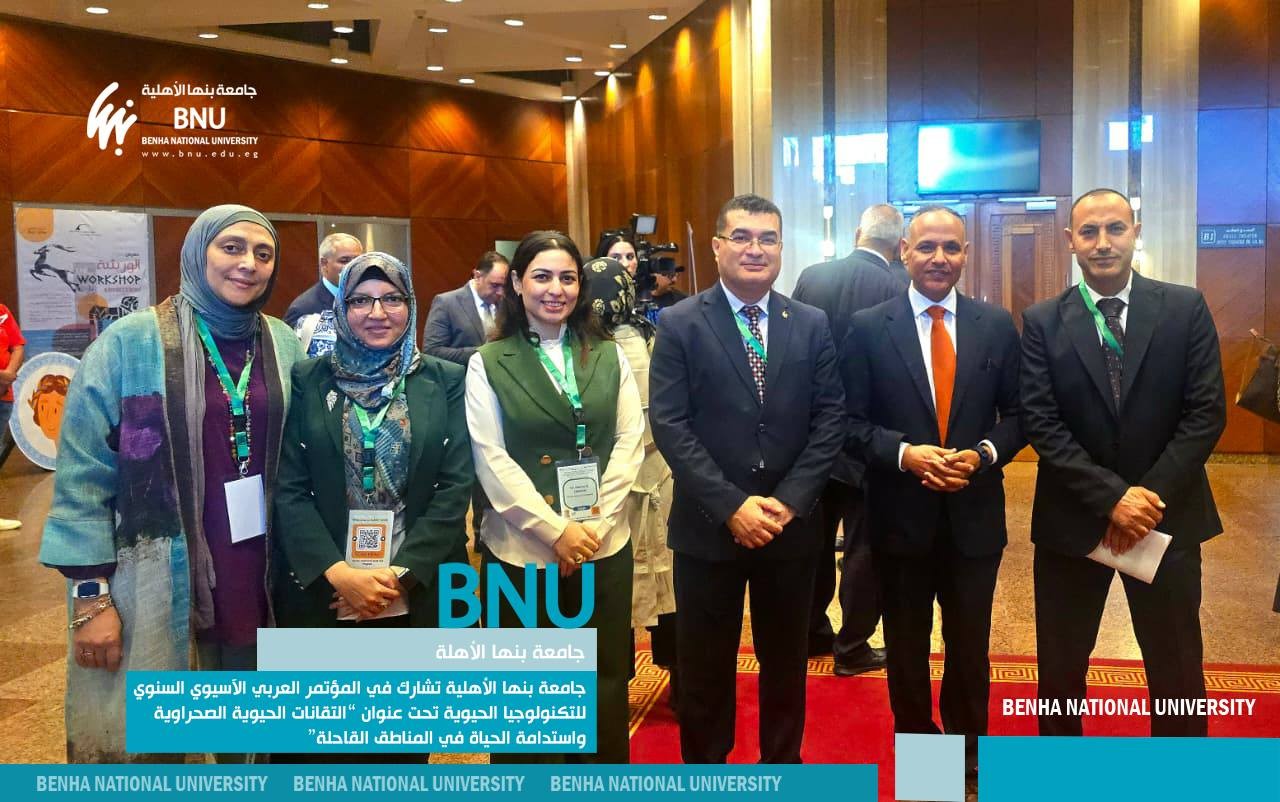Under the auspices of Benha National University and the leadership of Prof. Tamer Samir (University President), the university participated in the Arab-Asian Annual Conference on Biotechnology, held at the Bibliotheca Alexandrina Conference Center under the theme:
"Desert Biotechnology and Sustainability of Life in Arid Regions".
Chaired by Prof. Mahmoud Saqr (University Advisor for Scientific Research and Innovation), the conference featured scholars and researchers from 12 Arab, Asian, and international countries.
Participation Highlights
- Research Contributions:
The university presented cutting-edge research in:
- Medical and veterinary biotechnology.
- Energy sciences, life sciences, and cellular regeneration applications.
- Combating chronic diseases and environmental stress resistance.
- Development of biotherapies supporting sustainable development.
- Delegation Members:
The university was represented by:
- Ayman Samir Farid(Director of Veterinary Medicine Programs).
- Enas Abdel Moneim El-Sayed Imam(Faculty of Human Medicine).
- Ahmed Ibrahim Mohamed Abu Ahmed(Veterinary Medicine).
- Azza Mohamed Marei(Veterinary Medicine and Energy Sciences).
- Mervat Kamal Abdo Eskander(Veterinary Medicine and Energy Sciences).
Leadership Statements
- Tamer Samir (University President):
"Our participation reflects the university’s commitment to advancing applied research and fostering international partnerships aligned with Egypt’s Vision 2030 in health, environment, and energy sectors."
- Ayman Samir (Veterinary Medicine Programs Director):
"This step strengthens the university’s global research profile and leverages biotechnology to address sustainability, food security, and environmental challenges."
International Conference Scope
Participants included experts from: Egypt, Germany, Sweden, USA, Malaysia, India, China, Poland, Canada, Bulgaria, Jordan, Tunisia, and Sudan, alongside representatives from international organizations such as:
- Food and Agriculture Organization (FAO).
- Egyptian Patent Office.
- National Council for Women.
- Agricultural Research Center.
- Desert Research Center.
This engagement underscores the university’s role as a hub for applied research addressing regional environmental and developmental challenges.

